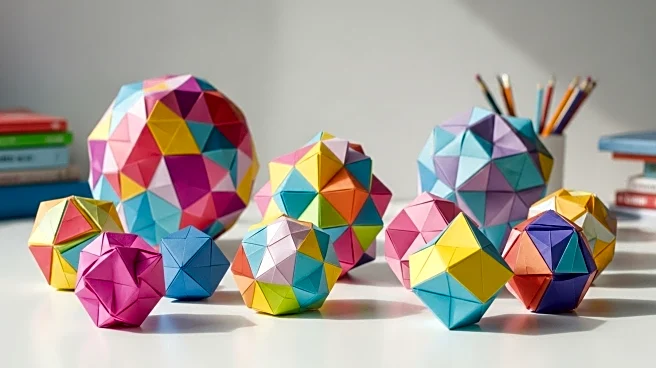Origami, the traditional Japanese art of paper folding, has found its place in educational settings, offering a unique approach to teaching geometry and mathematics. The practice involves creating intricate designs from a single sheet of paper, fostering creativity and problem-solving skills. Origami's educational value extends beyond art, providing practical applications in various academic disciplines.
Curriculum Relevance
Origami is integrated into educational curricula, particularly in early childhood education. In Japan, origami was included in kindergarten activities as early as 1875, emphasizing its role in developing fine motor skills and spatial awareness. The art form is used to teach geometric concepts, such as symmetry, angles, and shapes, making it a valuable tool in mathematics education.
Programs and Institutions
Educational institutions worldwide have adopted origami as part of their teaching methods. Workshops and classes are offered to students of all ages, focusing on the mathematical and artistic aspects of origami. These programs aim to enhance students' understanding of geometry and improve their problem-solving abilities through hands-on activities.
Learning Outcomes
Origami helps students develop critical thinking and spatial reasoning skills. By following step-by-step instructions to create models, students learn to visualize geometric shapes and understand their properties. The process of folding paper into complex designs encourages patience, precision, and creativity, contributing to overall cognitive development.
Source-Grounded Resources
Numerous resources are available for educators looking to incorporate origami into their teaching. Books, online tutorials, and educational kits provide guidance on basic folding techniques and model construction. These resources offer a comprehensive approach to learning origami, ensuring that students gain both artistic and mathematical insights from the practice.

 Discover Daily
Discover Daily 







